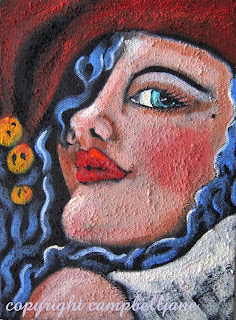Mind: All human beings share in being a part of, and
connected to Mind, the universal Life energy and source of intelligence beyond
the brain. Because of Mind, we share in an endless flow of wisdom—each of us
equally capable of being wise.
Consciousness: All human beings share in the
principle or fact of Consciousness. We experience life. We also experience life
from different levels of consciousness—from truncated and fear-based,
angry and insecure “levels” to grounded, secure, safe, wise and even
enlightened states (Buddha Mind, Christ Consciousness, the “Father within,” the
Kingdom of Heaven.) If humans lived even a little more often in this last state
of mind, the impact on world peace, from a personal to a global level, would
be significant.
The principle of Thought, as a universal function,
guides humans either toward or away from non-violence, love and compassion. The
existence of a personal thought system, or “ego”—which we see as simply being a
sticky attachment to, or identification with thoughts—trips up our noble
aspirations for peace. Yet we have found that teaching people about the neutral
fact of Thought, and how it creates reality for each of us (rather than
attempting to change “content”), allows people to shine the light of this
principle on all their thinking. Levels of consciousness jump as people
gain understanding about the formless source of all ideas,
beliefs and opinions.
When humans understand that a thought is just a thought,
just a creation from formless energy, the iron grip the ego can have on us
begins to lessen. Lighter, gentler, more inspired feelings arising from
impersonal, or universal thoughts create kind and selfless behaviors. We
begin to realize we are so much more than our limited thoughts. So much more
than we ever “thought”! While respecting our own and others’ traditions,
cultures and preferences, we see beyond the forms that humans have created—and
to the deeper truth of our common divinity, our shared existence in universal
Mind, Consciousness and Thought … or in Life. From this vantage point, there is
no reason to argue, to fight, to hurt another. When I hurt you, I diminish me.
So, our personal answer is to share with people these simple
principles that govern their states of mind. Because, beneath it all, all
humans are already wise, good, generous, kind and even enlightened. When
the clouds of thought begin to part, they each take their unique and radiant
place in being one in “six billion paths to peace."
What do YOU think?
Artwork: Ronald D. Isom Many thanks.
See also Sydney Banks, “The Missing Link: Reflections on
Life and Philosophy” & other works.
http://www.centerforsustainablechange.org/principles.php
http://www.centerforsustainablechange.org/principles.php

















